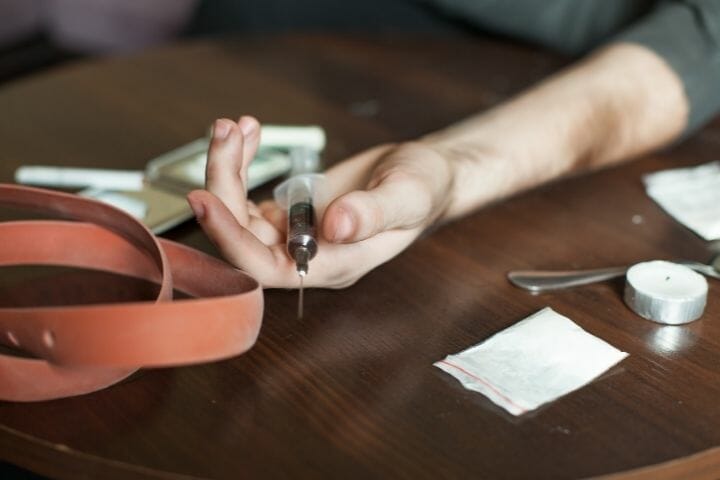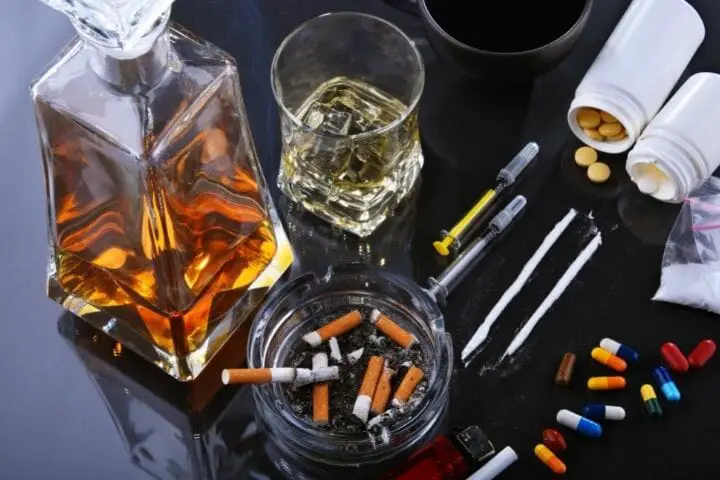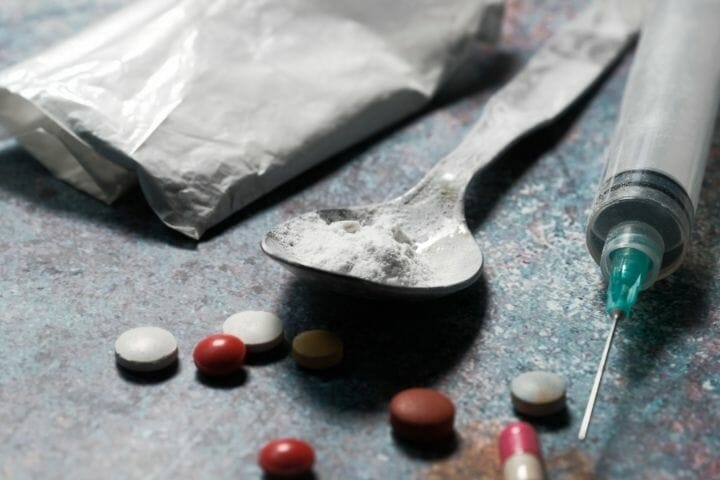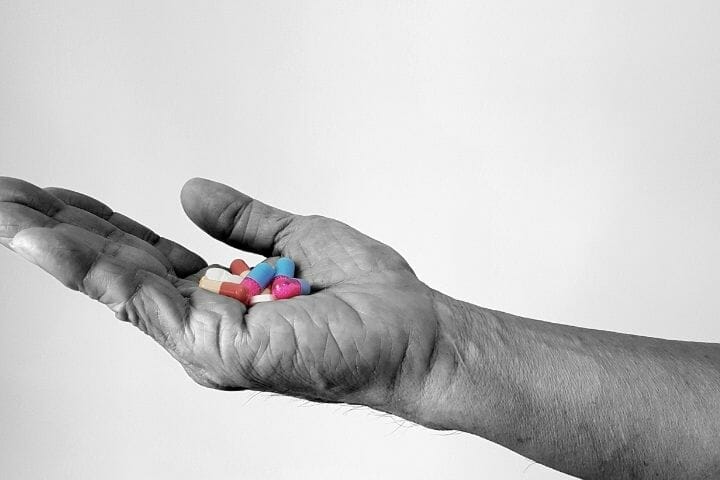Understanding and being able to recognize the signs of substance abuse are very important because they may help save the life of someone you know and love. Read more about these in the article below.
Contents
Nearly 10% of the American population has faced substance abuse at some point of time in their lives. Feeling stressed before or after a crisis is common. Many people who face such hardship become victims of substance abuse. Some substance abuse cases are intentional, while some are unintentional.

People who are suffering from substance abuse permanently hide their condition; however, the symptoms of substance abuse are easily recognizable. You should look out for these symptoms in yourself (if you think you do “just a little bit,” then these signs will surely help you realize that it’s not a little) or the people around you.
An addiction to the substance can occur when a person continues using it, and it can lead a person to lose everything they had. It can also harm their family, friends, and close people.
How Drug Use Starts
Life Problems
A person usually starts using a substance when they face trouble in their family, career, or relationships. Some people may accidentally use harmful substances unknowingly.
Recognizing a person with substance use disorder is challenging as most people deny substance use disorder. However, addiction can cause more devastating effects on their life.
When a person first initiates using drugs, they may be looking for a way to escape from reality, resulting from socially experimenting with different substances.
Disease Treatment
Drug addiction can also start from treatment for a disease. Many people with chronic illnesses take prescription drugs when their doctors recommend them, but most avoid their doctor’s warning of misuse of drugs.
People who avoid their doctor’s instruction and interact their medication with other substances such as alcohol, amphetamines, marijuana, and other potent drugs can develop substance use disorder.
Opioids are a kind of drug used for reducing pain, which is prescribed to patients with many chronic diseases. According to a study, 80% of heroin users are victims of opioid abuse, as when they encountered an injury or accident, they were prescribed opioid drugs as a prescription from their doctor.

People who have to take opioid medication may use a cheap version instead of their actual medication and take them in higher doses, which results in addiction.
When a person takes drugs, their body starts tolerating its effect, and the person begins taking more and more frequent doses of the drug considerably to achieve the “high” or the reduction in pain they used to get earlier.
Substance abuse can occur at any stage of life. However, the risk of dependence on the substance is higher during childhood and adolescence. Adults and seniors may also suffer from substance use disorder as no one is immune to it. You should avoid the use of drugs as much as possible for your and your family’s safety.
What Are the Risk Factors for Substance Abuse?
People can become readily addicted to any substance when they have high-risk factors for addiction. Some risk factors that increase the chance of a person using substances include:
- Mental illness
- Family history of addiction
- Poverty
- Homelessness
- Traumatic life events
- Little understanding of health maintenance
- Past abuse or domestic violence
- Lack of a social support system
Early Warning Signs for Substance Abuse
Drug abuse affects people from all aspects of life, along with socioeconomic status. The reason for substance abuse may be tolerance, increased use, prescribed use, or physical dependence, but its result is always devastating.

When a person reaches high levels of a substance use disorder, it becomes nearly impossible to stop them from using drugs with any professional treatment. This is why it is important for people to look for the early warning signs of substance abuse so they can control and prevent it from becoming worse.
You can look for symptoms as most of them are common and noticeable. However, people show various signs from different stages, including physical, mental, and behavioral.
Physical signs
When a person suffers from SUD, their body exhibits significant evidence of substance abuse. While people are skillful in hiding most of the physical signs of substance abuse, some of the symptoms are common and become easily visible in you or a suspected person.
Physical signs of substance abuse include:
- Tremors of seizures
- Frequent runny nose
- Extreme lethargy
- Loss of physical coordination
- Pinpoint pupils
- Poor personal hygiene
- Changes in weight
- Bloodshots or watery eyes
- Changes in eating habits and appetite
- Irregular sleeping patterns or trouble falling asleep
- Clenching of the jaw
- Marks on skin
- Chemical odor on breath or clothes

Mental or psychological signs
When a person misuses a drug or other harmful substance, it directly affects their brain functionality and starts feeling differently than a regular person.
When people first begin using a medication, their body develops tolerance, but their brain develops its need.
Some psychological signs of substance abuse may include:
- Change in person’s attitudes, thought patterns, beliefs, and priorities
- Mental illness like anxiety, depression, or insomnia
- Changes in personality traits
- Lack of motivation
- Negative self-image
- Paranoid, fearful, or having obsessive thoughts
- Feelings of apathy or disinterest
- Dismal attitude toward life
- Withdrawing emotionally from loved ones
- Experiencing sudden mood swings
- Irritability or aggression
Behavioral signs
Usually, the person who uses drugs or alcohol acts as a strange person and develops some behavioral signs. The signs are noticeable as most of them are physical symptoms.
You should look for these behavioral symptoms in a person or yourself for reversing the drug addiction as soon as possible.

Some of the behavioral signs are:
- Shifts in social circles
- Changes in hobbies or activities
- Poor performance in work or school
- Decreased participation in group and family activities
- Self-isolation
- Legal issues
- Financial issues
- Neglecting responsibilities
- Secretive behavior
- Spend time with people who take drugs
- Repeated lying, dishonesty, or deceit
Other signs for substance abuse in lifestyle patterns
Substance abuse drastically affects a person’s lifestyle. When a person gets addicted, they still use drugs after knowing their ill effects. Addicted people may not stop until they receive professional treatment.
The signs of substance abuse may overlap with symptoms of other medical conditions. You may find these symptoms and signs in your lifestyle if you are suffering from substance use disorder.
Some signs that you may have substance use disorder include:
- You start neglecting your responsibilities at home.
- You are showing a negative effect on your performance in school or work.
- You are engaging in secretive activities.
- You may face legal problems such as disorderly conduct or DUI arrests.
- You may perform dangerous or high-risk activities under the influence of a substance.
- You start stealing to obtain the substance.
- Missing prescription drugs
- No longer participating in extracurricular activities or sports.
- You start isolating yourself from others.
- Constantly borrowing money from others.
- Increased conflicts in your relationships are usually arguments with family or co-workers.
- Fixation with clothing and music related to alcohol or drugs.
- You may not recall events while drinking
- You may experience recurring episodes of depression, mood swings, and feeling irritated.
- You may use alcohol to improve your mood or feel normal.
- Your grooming habits deteriorate.
- You may experience some common withdrawal symptoms when you stop using the drug
- You take more significant amounts of drugs to feel the typical effect
- You may experience sudden weight loss or gain.
If you notice any symptoms in your loved one or yourself, you should quickly get professional help before your SUD worsen and cause more problems.
Some physical and mental symptoms of substance abuse are similar to the signs of many chronic diseases. You should review with your health care provider to verify whether your loved one or you have SUD.

Signs of Alcohol and Specific Drug Addiction
Each sign of substance abuse is different from others, and you may notice the following symptoms in the suspected person.
Alcohol
Signs of alcohol abuse include:
- Sleepiness
- Slurred speech
- Clumsiness or staggering
- Impaired judgment
- Suffer from anxiety
- Risking physical safety
- Slow reaction times
- Missing alcohol bottles
- Spending too much money on alcohol
- Trouble coordination
- Impaired with driving skills
You might like to read: Blood Alcohol Calculator
Marijuana
Signs of marijuana abuse include:
- Dry mouth
- Red, bloodshot eyes
- The scent of sweet smoke in clothing
- Unexplained cough
- Inappropriate or excessive laughter
- Talking too loudly
- The scent of cigarettes, incense, or cloves on body or clothes to hide the smell of marijuana
- Sleepiness
- Weight gain
- Eating salt or sweet food at unusual or excessively
- Loss of motivation

Stimulants
Some stimulants include ecstasy, cocaine, methamphetamine, and prescription stimulants, have the same symptoms of abuse. Signs of stimulants abuse include:
- Dry mouth
- Grinding teeth
- Sore jaw
- Dilated pupils
- Anxiety or irritability
- Hyperactivity or excessive talking
- Flushed skin
- Euphoria or giddiness
- Skipped meals or sleep
- Weight loss
- Sudden episodes of paranoia or depression
Hallucinogens
Some hallucinogens include PCP, LSD, and magic mushrooms, have ill effects on the body and mind of their user. Signs of hallucinogens abuse include:
- Difficulty interacting with others
- Excessive self-absorption or focus on objects
- Mood swings or confusion
- Bizarre behavior, including aggression, inappropriate affection, or paranoia
- Dilated or irregular pupils
Inhalants
People who abuse inhalants, including aerosols or glue, experience some common symptoms. Signs of inhalants abuse include:
- Headaches
- Nausea
- Difficulty seeing
- Runny nose
- Watery eyes
- Drowsiness
- Clumsiness
- Impaired memory
- Rashes around the mouth or nose
- Irritability or anxiety
- An unusual amount of cream charging cylinders or spray cans in the trash

Benzodiazepines
Doctors prescribe benzodiazepines, including Xanax, Ativan, Klonopin, and Valium, to people with mental illnesses. Signs of benzodiazepines abuse include:
- Missing prescription pills
- Sleepiness
- Slurred speech
- Impaired judgment
- Trouble in coordination
- Slow reaction times
Opioids
Doctors prescribe their patients opioid as a painkiller. Some opioid drugs include morphine, codeine, heroin, Vicodin, Dilaudid, Percocet, OxyContin, fentanyl. Signs of opioid abuse include:
- Loss of appetite
- Vomiting
- Sweating or clammy skin
- Sniffling or coughing
- Needle marks in arms, legs, or feet
- Sleeping during the day
- Loss of bowel movement
- Wearing long pants or sleeves to hide needle marks
- Missing prescription of painkillers
- Constricted pupils
What To Do When You Suspect Someone of Substance Abuse?
If you suspect someone from your family, friend, or loved one is addicted to drugs or alcohol, you should get immediate help from professionals. To convince the person who may use a drug to get help, you should use these tips, including:
You should try and understand their situation.
You should look for the reason why someone starts using drugs. The reason for using substances may be stress, wrong medication, or to fit in with a new peer group.
Addiction can damage a person physically and mentally; if a person is still taking drugs after knowing it, then the reason must be important. You should discover their reason for using drugs to help eliminate them.

Be nonjudgmental
When you find someone with SUD, you should avoid judging that person; instead, you should help them get out of this situation. You can show your love and support to them.
The addicted person may find difficulty while recovering and may relapse several times. Try to be with that person on every step they take forward to their recovering journey.
Treat addiction as a mental illness.
Drugs can ultimately influence the way of thinking of a person who abuses it. Willpower is not enough to recover; an addicted person will need proper care from others such as friends, family, and doctors.
You should not blame that person for their sickness as it will not help them stop using drugs; instead, they may become more addicted because of guilt and shame.
Prepare for the conversation.
When you find your loved one or other family member is using drugs, you may not want to believe it, but you have to. You should be prepared before talking to them about their addiction. Sort out your feelings before discussing; choose words precisely.
You can also contact addiction treatment centers to open the conversation and provide necessary information about the treatment.
Use precaution while discussing addiction problems.
You should avoid discussing treatment in the first stage of your conversation with your loved one. Time your talk for a moment when the person has recently faced clear consequences for their drug addiction. It helps reflect on their substance abuse.
You might like to read: Alcohol Abuse and Seniors
Wrap Up
Get help if you suspect any signs of substance abuse in any person around you. Drug abuse or alcohol abuse can both ruin a person’s life. You should get help without any delay, and you can contact a healthcare provider, drug detox helpline, or any rehab center.

If your loved one, parent, family member, or friend shows early signs of drug abuse, you should stick with them till the end of their healing journey.
We hope the things we have said in this article will help the readers understand and recognize symptoms of substance abuse in themselves or others around them. If you would like to share your own experiences about substance abuse or those of others you know, please do write about it in the comments section.
Please share this content with others so that people can stay away from this sickness that is afflicting many people in our nation.

